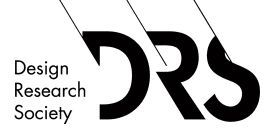contributions
Inequalities in the participation in social learning and open innovation during crisis
LOTZ Nicole
School of Engineering and Innovation, The Open University, UK
Nicole.lotz@open.ac.uk
Presentation
Abstract
Over the last years, I have been working with partners in Mexico to support the co-design of FabLabs and Makerspaces in marginalised communities. FabLabs (Fabrication Laboratories) are non-formal educational settings that provide expertise and machinery to enable local digitally-enhanced making in collaboration with others. Fablabs use open innovation processes for producing artefacts locally and sharing ideas and solutions globally across their networks (https://www.fablabs.io). The FabLab LaCampana, situated in a High School in the neighbourhood La Campana-Altamira in Monterrey, Mexico is an example of a FabLab in a marginalised community (Lotz et al., 2019). After a conflict ridden past, in 2012, the La Campana-Altamira neighbourhood sought a change through open engagement in public life. The community FabLab has been one of many projects that community members and other stakeholders publicly participate in. The lockdown and social distancing measures to prevent the spread of the COVID-19 disease had a disproportionate impact on this marginalised community. This coffee table discussion seeks to explore how we can address the increasing inequalities in the participation in social learning and open innovation in FabLab and Maker communities.
FabLabs; inequality; participation; learning
References
Lotz, N. Thomas, B., Fernández Cárdenas, Reynaga Peña, C. Díaz de León Lastras, A. González Nieto, N.A., Hayhoe, S. López, F. Machado, R. Cortes Capetillo, A.J. Santamaría-Cid de León, D. (2019). Co-creating FabLab La Campana: Empowering a marginalised community in the North of Mexico, In: World Conference on Design Research IASDR 2019, Manchester.
About the Authors
Nicole is a Senior Lecturer in Design at The Open University, UK, which is a distance learning institution. Nicole is interested in design processes, collaboration and engagement across boundaries and at the margins. Her work aims at understanding and supporting those who want to create and learn to engage, persevere and succeed, even in challenging situations. This interest arose from her background and lived experiences in Eastern Germany, Hong Kong and the UK, and research carried out in South East Asia, Africa and Latin America. Her current achievements include leading the School of Engineering and Innovation at the OU towards greater equity, inclusion and diversity by chairing the School’s Athena SWAN submission. She has also recently completed two Higher Education links projects with diverse stakeholders in Yucatan, Mexico. Nicole currently supervises PhD students who look at racial inequality and mental health in design education.

